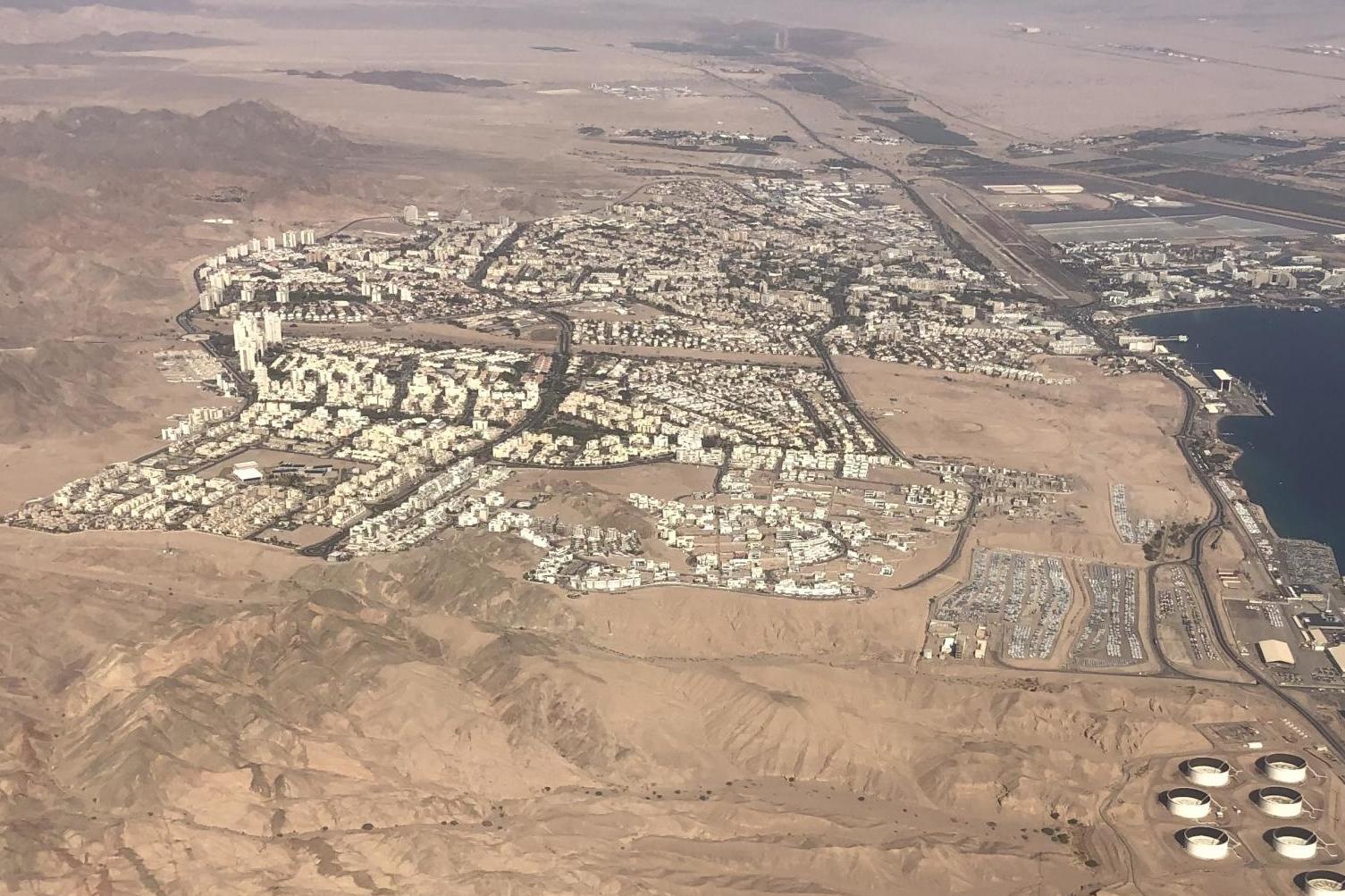If you want to get to Egypt, fly to Israel
Plane Talk: Flights to Israel’s new Eilat Ramon airport are heavily subsidised

Your support helps us to tell the story
From reproductive rights to climate change to Big Tech, The Independent is on the ground when the story is developing. Whether it's investigating the financials of Elon Musk's pro-Trump PAC or producing our latest documentary, 'The A Word', which shines a light on the American women fighting for reproductive rights, we know how important it is to parse out the facts from the messaging.
At such a critical moment in US history, we need reporters on the ground. Your donation allows us to keep sending journalists to speak to both sides of the story.
The Independent is trusted by Americans across the entire political spectrum. And unlike many other quality news outlets, we choose not to lock Americans out of our reporting and analysis with paywalls. We believe quality journalism should be available to everyone, paid for by those who can afford it.
Your support makes all the difference.Inevitably, flying to a place that has had no direct flights from the UK for four years is going to involve a change of planes. So my first stop to reach Sharm el Sheikh in Egypt was in Warsaw.
Four years ago, Metrojet Flight 9268 crashed 23 minutes after take-off from Sharm el Sheikh. All 224 people onboard the charter flight to St Petersburg lost their lives.
Investigators believe that a bomb was planted on the aircraft while it was on the ground at the Egyptian airport. Many countries banned their airlines from flying to Egypt’s premier resort, and the UK Foreign Office’s prohibition was lifted only in October this year.
Ahead of the first direct flights from Britain since 2015, I wanted to revisit the resort. And, of course, spend as little as possible on getting there.
The first ingredient was to aim for Israel, not Egypt. Earlier this year a shiny new airport opened north of Eilat, Israel’s Red Sea resort. To encourage visitors to use Ramon airport, and spend time in Eilat, the authorities are subsidising flights from eastern Europe. So you can pay typically less than £30 each way for a hop between Warsaw, Sofia or Budapest and the Red Sea. My flight from the Polish capital to Eilat cost £22, in return for a painful 5.55am departure.
But that was the easy part. Finding a reasonably priced flight to Warsaw to get me in position the day before was annoyingly difficulty – it was well over £100 even on Ryanair to the secondary Warsaw airport, Modlin. So instead, I waited for British Airways to put some Avios availability on the route from Heathrow.
For several days, BA insisted only business class was available – but the day before, I woke up to find plenty of economy availability.
While the fare in real money was showing as a remarkable £382, I paid £60.50 in cash and a couple of thousand Avios (which I value at about £25-worth). This happens, in my experience, much more often than you might think – though I could have been expensively wrong.
The British Airways flight from Heathrow was 20 minutes late for reasons no one explained, but I reached Warsaw in time for a stroll through the sparkling Old Town and an absurdly good dinner: Pod Samsonem is the place to seek out for a filling feast at a ridiculously low price by UK standards.
Then a night at my favourite airport hotel in Europe, the Sangate – something of a Soviet relic, just a 10-minute walk from the terminal.
But when I woke at (ouch) 4.30am, the first thing I saw was a text from Wizz Air saying the departure was postponed by more than two hours.
Onboard, the captain explained that the Israeli authorities had closed the airport until 1pm; we were originally due to land at 11am.
The flight was just fine: a brand-new Wizz Air Airbus A321 with a pleasingly light load, enabling me to catch up on some of the missing sleep.
The plane flew south over the resort before a 180-turn that provided an excellent view of the old Eilat airport – placed absurdly almost in the middle of town.
Unfortunately, touchdown was at 1.10pm – immediately after arrivals from Sofia and Moscow.
Israeli passport control beats even the US for intense scrutiny and questioning, and for we on the third plane in line, it took two hours of standing queueing before my interview.
“How long are you staying in Israel?”
“As long as it takes to reach the Egyptian border.”
Which turned out to be about 40 minutes aboard the direct bus from the airport. The sun was already sinking low across the Sinai mountains, but the plan had worked, after a fashion.
As a back door to Egypt’s Red Sea resorts this winter, try the Eilat approach. Hope for the best, but as with any journey, be prepared for delay and disruption.
Coming back? I flew from Sharm el Sheikh, to assess the airport security set-up that has now persuaded Britain to relax its ban. And I shall write about that next week.
Join our commenting forum
Join thought-provoking conversations, follow other Independent readers and see their replies
Comments